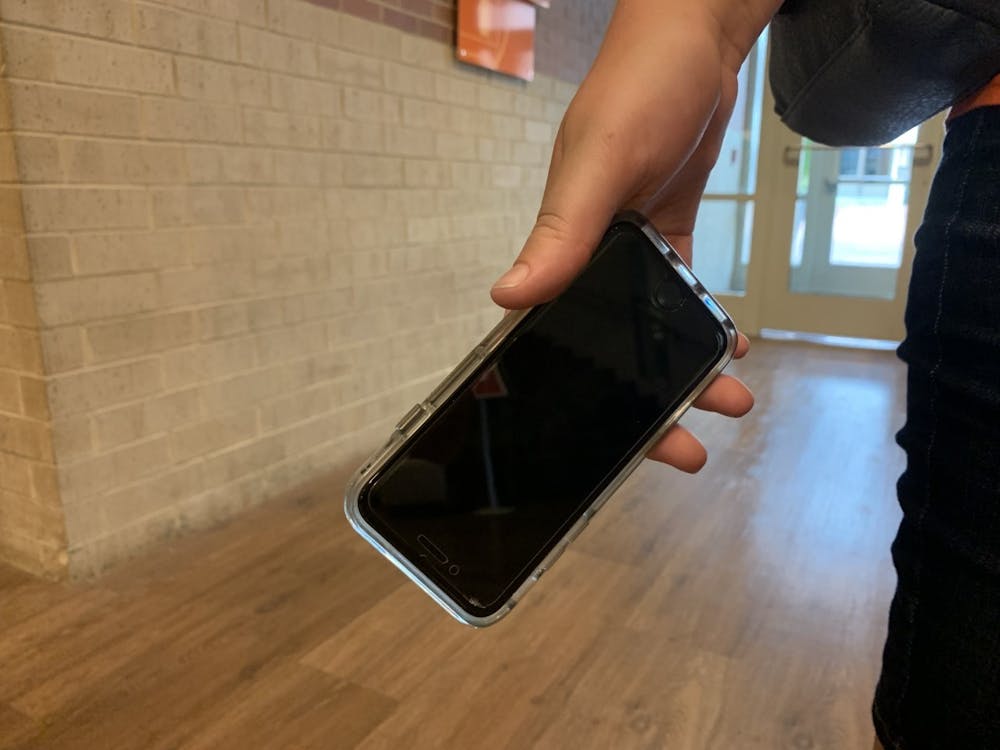Auburn University announced on Monday that its Tiger Cards — the student IDs used to purchase meals, unlock residence halls and gain access into athletic events — will now have a mobile option.
As of Monday, students are able to add their Tiger Card to their iPhones, Apple Watches or Android devices and will even have the option to only use the mobile card rather than picking up the new physical Tiger Card. iPhones need to be an iPhone SE, 6s, 6s Plus or later running the latest version of iOS.
With the mobile ID, students will be able to do most things they can with a plastic card, including paying for meals and gaining access to residence halls. Students will still need their physical cards to gain swipe access into campus rooms where card readers have not yet been updated, although the University is working to update all card readers.
The mobile option is expected to be more secure than a physical card. Kevin Watson, director of Student Affairs Technology, said the user’s card information is encrypted similarly to how a mobile banking card would work, which means information can’t be extracted from the phone.
The mobile option is also more secure than a physical card as students are generally less likely to lose their phone than their student ID, Watson said. And if you do lose your phone, you can disable your mobile ID remotely. Even if your phone dies, it will still be able to perform all of its Tiger Card functions for five hours, although that time may be shorter for older phones, he said.
“We’re pretty comfortable with the security level, and that was actually a pretty big facet for us to move to this,” Watson said.
Watson said Student Affairs Technology has been working on this project for about two years. They’ve been wanting to move beyond the magnetic stripe technology on Tiger Cards for a while, as Watson said the technology is a bit outdated and causes problems.
“It’s kind of like having a VCR. It's just a little bit antiquated,” he said. “It creates some problems with some of our systems, and as our IT systems get more and more advanced, the magstripe stuff gets harder and harder to keep working.”
Watson said that the old infrastructure will stay in place for a brief period so that magstripe cards continue to work, but they will phase that out during the fall semester.
As they were developing the mobile Tiger Card, Watson said one reason for the project was to reduce touch on campus, which he said became especially important during the pandemic.
Auburn is one of a handful of schools around the country rolling out the mobile ID option this year, although others, like the University of Alabama, had already made the switch. Alabama gave students the option to add their student ID to their phone in 2018, and this year, they’re going totally mobile. Watson said he could see a similar thing happening at Auburn.
“That’s kind of the goal … to get to something like that, to where you’re no longer even bothering with physical cards unless someone just has some compelling reason to do so,” he said.
So far, rollout has gone pretty smoothly, Watson said. About 1,500 students added the card to their phone or watch during the first three hours since it launched.
Hannah Wieland, freshman in architecture, said she thought having a mobile option is convenient for students. Alex Nugent, freshman in wireless engineering, said he feels like he’s less likely to lose his phone than a physical card.
“Everything’s on your phone nowadays,” Nugent said. “I always keep my phone on me at all times, but I could forget about the Tiger Card.”
University administration quoted in the press release from the Office of Communications and Marketing were also excited for the new mobile option.
“We’re thrilled to launch contactless technology at Auburn this fall,” said Bobby Woodard, senior vice president for Student Affairs. “It’s something our students have wanted, and we have worked hard to bring the safest, most secure and most convenient method of accessing buildings and services to campus.”
Do you like this story? The Plainsman doesn't accept money from tuition or student fees, and we don't charge a subscription fee. But you can donate to support The Plainsman.

Evan Mealins, senior in philosophy and economics, is the editor-in-chief of The Auburn Plainsman.





